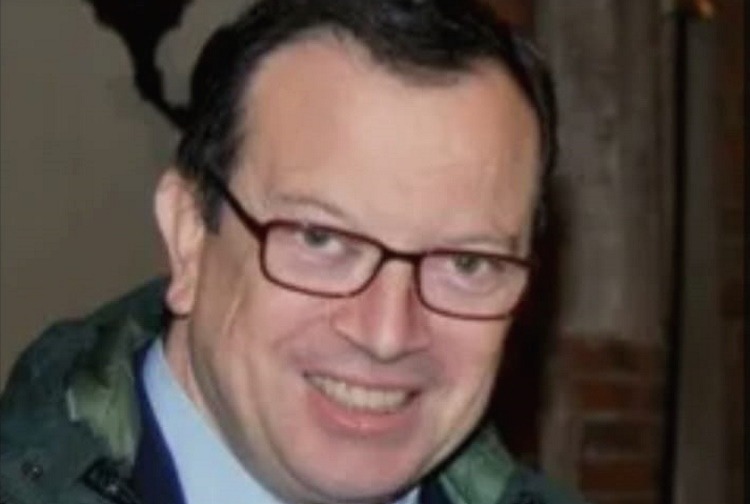The case of Marco Bellavia, the former presenter of “Bim Bum Bam” who fled from the house of “Big Brother” after being mocked and bullied by roommates, shows how much society still struggles to understand and sympathize with people with mental disorders. Perhaps, today, in this moment of great crisis, even more than in past years. The other evening Alfonso Signorini disqualified two contestants “guilty” of having uttered the most shameful sentences against Bellavia: Ginevra Lamborghini and Giovanni Ciacci. Driver, production and competitors apologized for the incident. Meanwhile, Canale 5 rejoices because the episode has made a bang with a 25% share. But was it right to put a fragile person in such a stressful situation? Why did the competitors perform so badly? We ask an important psychotherapist from Milan, Massimo Bettetini, scholar and writer.
Doctor, even with the limits of television simplification, the story shows how much depression is an increasingly explosive social problem.
“In broadcasts like these there is a lot of acting, but behind the mask there can be an authentic suffering that manifests itself precisely due to the intrinsic mechanisms of the television format. Depression has many causes and each patient is unique. It can arise for physical, psychic, or spiritual reasons. It seems to me a good thing to raise awareness on this issue. These are pathologies that cannot be seen, cannot be touched, but they make people suffer and a lot ”.
Massimo Bettetini psychotherapist, scholar and writer
The roommates are not inherently rude or selfish, they just couldn’t stand Bellavia because it was annoying. The compulsion obviously increases the problem exponentially. But is it common to be so intolerant of a fragile person?
“It becomes annoying because what happens is not part of the” script “that everyone unwittingly carries written in programs like Big Brother, it goes beyond what the roommates could expect, and then the refusal, superficial and vulgarly acted, is triggered.
Do you find that in this last period there is a greater difficulty in being available to others, especially after Covid?
“The pandemic has been severely tested and has become an opportunity for growth and development or for self-closure. Some age groups were more affected than others; I think of the boys between 10 and 20 years old. There has been an exponential growth of hospitalizations or care in the wards of child psychiatry and neuropsychiatry. As happens in other dramatic situations, there can be an accentuated openness towards others, in the willingness to serve, to make oneself useful, or, on the contrary, a closure that can even border on pathology. It will take time to study and understand the real experience of individuals and society in the pandemic and post-pandemic periods ”.
It was two boys inside the house (Luca Salatino and Antonella Fiordelisi) who showed themselves more empathetic. Is it easier for young people because they have not yet become cynical in life?
“Life doesn’t always make you cynical. The two boys realize that something anomalous is happening within the transmission, they stop, take off their “mask”, put on the mask of authenticity, become people and it is easier for them to approach the person in difficulty ” .
What should be done to help or at least not harm a person with mental disorders?
“First of all, listen to it, dedicating the necessary time to it, without judging, without wanting to immediately offer solutions that, immediately, will always be ineffective and indeed run the risk of worsening the situation by making the subject feel inadequate. And if the case is really pathological, it is a question of helping to turn to mental health specialists as soon as possible, overcoming the natural reluctance. As one goes to the EN if he has a sore throat, so one goes to the therapist of the psyche if the disorder is mental. There is still a fair amount of shame in turning to such specialists, an unjustified shame ”.
In your opinion, was it appropriate to bring a sick person into this type of program? Could she have helped him or was a big mistake made?
“I can’t judge because I don’t know the person directly. If in the selection it was known about the disease, then it was a mistake because, as I said, it is the format of the transmission that potentially unmasks or worsens the symptoms of a psychic pathology “.
Some of the roommates repented and apologized. In your opinion, can it be useful to thematize the case on TV – even obviously with the simple tools of a program? Thousands of people flocked to social media outraged at how Bellavia was treated.
“I am convinced that the disease cannot be exploited. The suffering person needs a kind of extra modesty; and even more so if the suffering is psychic. I’m not saying that you have to hide; but there is a need for that human closeness that television broadcasting cannot give ”.
What should Marco Bellavia do now, continue to talk about it in public as he would have liked to do inside the House or stay away from all this chaos?
“I would suggest, if he is not already under treatment, anyway and first of all to do it, thus trying to get better. Of course, this could be an opportunity to raise public awareness on a delicate issue such as depression, but always safeguarding oneself and others, as a person, as a person, which is very difficult to live with in a house full of cameras ” .
Read Also:
Marco Bellavia abandons Big Brother, depression and bullying in the House: storm on social media
Marco Bellavia, the psychologist: ‘It was a mistake to let a depressed person into the House ”

